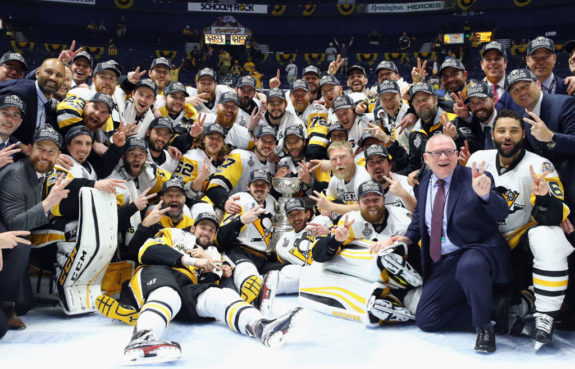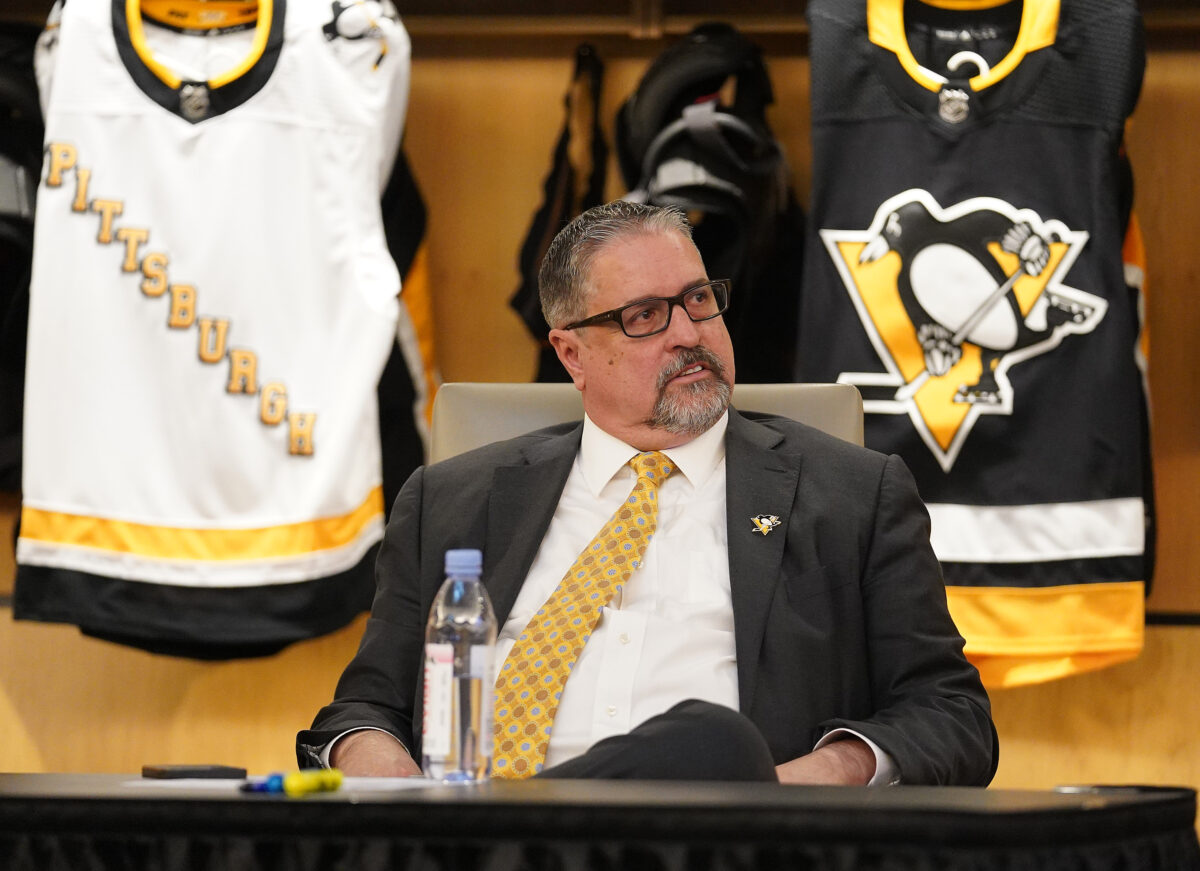The 2017 Stanley Cup Final was the culmination of a decade’s worth of work. When Pittsburgh Penguins captain Sidney Crosby was handed the Cup from NHL Commissioner Gary Bettman, it was widely believed that the Penguins were re-launching as a dynasty, having also won the Stanley Cup the previous year. The same players who had won the Penguins first new-era championship in 2009 were still there in 2017, and it seemed like they were re-invigorated and transformed into their former selves.

While the core three (Crosby, Evgeni Malkin, and Kris Letang) remained with the team as well as remained as good as ever, the Penguins’ window for winning began to close. As of the end of the 2021-22 season, it has officially closed.
Supporting Cast Becoming More Important Than Main Event
During the 2009 championship run, Crosby, Malkin, and goaltender Marc-Andre Fleury — himself long considered part of the core until being claimed by the Vegas Golden Knights in 2018 — completely carried the Penguins. Crosby led the playoffs in goals with 15, Malkin led in assists and points with 22 and 36, respectively, and Fleury, playing every playoff game, led in wins with 16. Fleury is most remembered for his string of saves in the final seconds of Game 7 to preserve a one-goal lead and hand the Penguins the Stanley Cup.
Related: 3 Teams to Watch Should the Penguins Walk Away From Evgeni Malkin
During their next Cup runs in 2016 and 2017, Crosby and Malkin still ran up the score lines. Malkin and Crosby finished two and three in playoff points in 2016, and one and two in 2017. In the years following the Cup victories, Crosby and Malkin’s production wained (relatively speaking) in favour of other, more secondary players. Players like Jake Guentzel, Bryan Rust, and Evan Rodrigues have since stolen the spotlight. Rodrigues has especially proven himself to be a critical part of the team’s goals, having had the best season of his career in 2021-22.
Penguins’ Goaltending Not What It Once Was
When the Penguins were winning three Stanley Cups in the span of 10 years, they were fortunate to have some of the best goaltenders in franchise history. Marc-Andre Fleury, now a three-time champion and Vezina Trophy winner in 2021, backstopped the Penguins in 2009. In 2016 and 2017, the Penguins possessed arguably the best net minding duo in the league, Fleury and Matt Murray. As a rookie, Murray won those two Stanley Cups after Fleury went down with injury just before the 2016 playoffs began, starting every game from Game 3 of the first round against the New York Rangers (from ‘Yohe: On Matt Murray, a pair of Penguins Stanley Cups and the legacy he left in Pittsburgh,’ The Athletic, 1/20/22). As a result, he won the starting job the following season, and the Penguins rolled to another championship.

Fleury left the Penguins in 2018 after being left unprotected ahead of the expansion draft as the Golden Knights entered the league. Murray held down the fort for the next few seasons before being replaced by current net minder Tristan Jarry. While Jarry remains an excellent goaltender in his own right, his history of injury and Casey DeSmith’s struggles have left the once solid position in limbo. Unless the Penguins find stability there, a championship-calibre team will be elusive.
Penguins Undergoing Off-Ice Transition
The biggest organizational news of 2021-22 surrounding the Penguins may have already occurred. In Nov. 2021, Mario Lemieux and Ron Burkle sold a controlling stake in the team to Fenway Sports Group, the owners of Major League Baseball’s Boston Red Sox and Liverpool FC of the English Premier League. While the mentality remains the same, the transition to new owners often means changes in management philosophies, which may prioritize different things. This has special meaning for many of the players, as Mario Lemieux has the heart and soul of the Penguins for his entire career, both as a player and as a member of the ownership group. (from ‘Fenway Sports Group adds Pittsburgh Penguins to its growing portfolio, The Washington Post, 29/11/2021) On top of that, the Penguins’ CEO, David Morehouse announced his resignation in April, ending a 16-year period of stability at the top.

It seems the Penguins are arriving at a nexus of transition as the core may break up, the goaltending is shaky, and the management is undergoing a significant shift. Given both the potential and real uncertainty that seems to be arising, along with the major organizational changes, the Penguins window for winning is officially closed even though the core may in fact, return in its entirety.